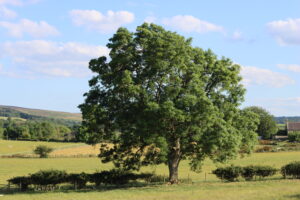New campaign launched by environmental advocacy groups aims to shed light on the UK’s subsidies to companies that burn trees for electricity.
The UK is the largest user of biomass electricity in Europe, backed by more than £1bn a year in government subsidies.
According to the Cut Carbon Not Forests campaign, burning wood in power stations is no better for the climate than burning coal, especially as much of the wood is cut down and shipped in from sensitive forests overseas, causing damages to wildlife and habitats.
The campaign, which is led by Biofuelwatch, Dogwood Alliance, Natural Resources Defence Council (NRDC) and the Southern Environmental Law Center, aims to put pressure on policymakers to support reform away from biomass. They are calling on the government to redirect the billions of pounds used for biofuel to fund genuinely clean and renewable energy systems like solar and wind.
According to the campaign, the British public opinion aligns with a push towards biomass subsidy reform. YouGov found 82% of respondents were worried about the impact on wildlife if trees in forests were being cut down to supply power plants.
Almuth Ernsting, co-director of Biofuelwatch said: ‘The climate emergency requires us to build a genuinely clean-energy economy and end wasteful subsidies for dirty biomass energy.
‘Cutting down trees, shipping them from forests overseas and burning them in power plants was never compatible with the need to keep global warming to 1.5 degrees; that’s even clearer today. It’s long past time to redirect this aid to genuine climate solutions like wind and solar energy.’
Sasha Stashwick, a senior advocate with NRDC added: ‘Our two biggest global environmental challenges – climate change and biodiversity loss – are inextricably linked, so keeping forests standing must be a priority of all governments.
‘Much of the wood burned in UK power plants is cut down and shipped in from ecologically sensitive forests in the Southeastern U.S. Those forests are efficient and powerful carbon-capture systems and support unique wildlife found nowhere else in the world.’
Photo Credit – Pixabay















